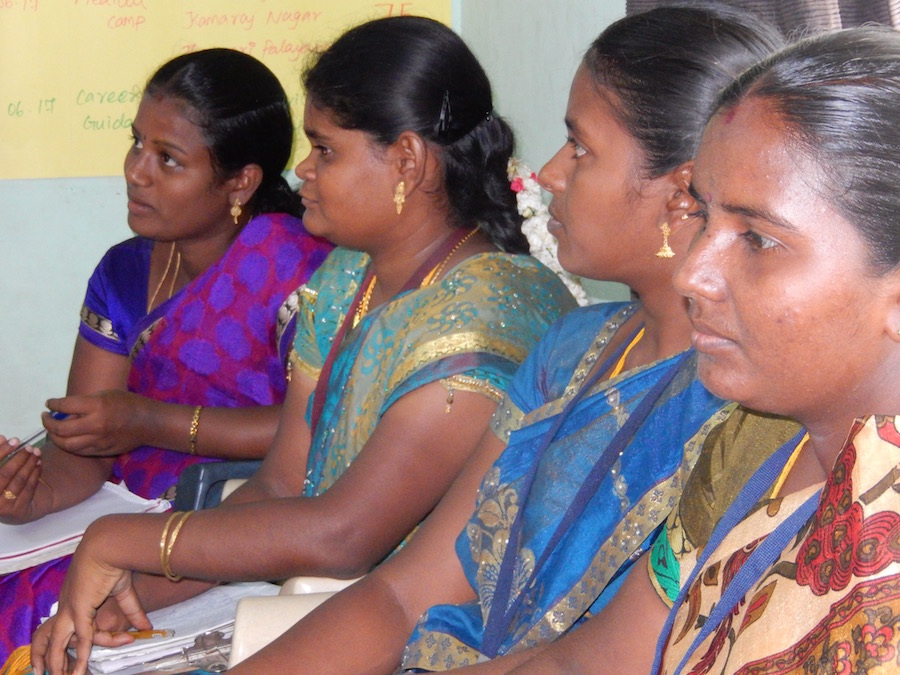India’s textile industry is rife with bonded labour, a common form of modern slavery in which a person must work in order to repay a debt. Poverty and lack of education make women and girls in southern India particularly susceptible to bonded labour in cotton spinning mills. Recruited through exploitative employment schemes, they are sent by their families to work in order to secure money for a dowry. The Freedom Fund’s southern India hotspot is tackling this issue through partnership with a network of local organisations, including the Centre for Action and Rural Education (CARE).
CARE is a non-profit organisation that works in over 500 villages in southern India. Across the hotspot, CARE and other partners work to reduce bonded labour by strengthening 447 adult community support groups, 690 adolescent girls’ groups, and 502 adolescent boys’ groups. Through these groups, community members watch films about bonded labour and engage in meaningful dialogues around their own rights, safety and available support systems.
One community member, Deepa, worked full shifts at a cotton mill, rotating weekly between working during the day and night. Mills like the one where Deepa was employed are known for low wages, unregulated working hours and hazardous environments. Working in such circumstances causes employees to endure high levels of physical and mental harm, such as trauma and work-related injuries. Deepa did not know how to break free of the situation and attempted to get married to escape her conditions. However, soon she realized this was not the right path, and decided she wanted to get an education and study again. Her community’s response was harsh. Her parents blamed her for the situation and would not listen to her. Her family and neighbours shunned her and refused to talk to her. She became depressed and considered ending her life.
CARE’s trained staff provided Deepa with the help she needed to get through this isolating time. Deepa explains, “The only place I felt comfort was in the community facilitator’s house.” It is there, she recalls, where she felt she could share her feelings and feel safe. The community facilitator’s kindness, support, and solace, Deepa revealed, were “the only reason that made me postpone my decision to end my life.” She feels that her community facilitator gave her the resilience and bravery to “believe that there is a better future.”
Deepa’s story exemplifies just how truly transformative CARE’s work can be to the lives of those trapped in bonded labour. By providing a safe space and a supportive facilitator, at-risk women and girls can now find the help they need to pave a safer future for themselves. Through their work to help women like Deepa, CARE and other partners in the southern India hotspot are changing generational norms around ethical working conditions and human rights.
The Freedom Fund’s southern India hotspot works within the state of Tamil Nadu to prevent and eradicate bonded labour in the textile industry. Hotspot partners work to reduce the exploitation of vulnerable women and girls and assist them in pursuing a brighter future.
Pictured: CARE fieldworkers meeting.
Photo: Ginny Baumann, Freedom Fund



